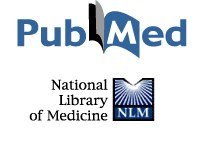Peripheral antinociceptive effect of anandamide and drugs that affect the endocannabinoid system on the formalin test in normal and streptozotocin-diabetic rats.
Source
Department of Pharmacology, Biological Sciences Building, Federal University of Paraná, Curitiba 81540-990, PR, Brazil.
Abstract
 Diabetes is often associated with painful neuropathy. The current treatments are symptomatic and ineffective. Cannabinoids have been proposed as promising drugs for chronic pain treatment and its antinociceptive effect has already been related in nerve injury models of neuropathic pain, but little has been investigated in painful diabetic neuropathy models. Thus, the current study aims to investigate the potential antinociceptive effect of drugs that alter endocannabinoid system when injected subcutaneously into the dorsal surface of the ipsilateral hind paw in chemical hyperalgesia induced by formalin in both normoglycemic (Ngl) and streptozotocin-diabetic (Dbt) rats. Diabetic rats exhibited exaggerated flinching behaviors during first and second phases of the formalin test, indicating the presence of hyperalgesia. AM404, an anandamide (AEA) re-uptake inhibitor, AEA (an agonist of CB1/CB2 receptors) or ACEA (a selective CB1 receptor agonist) induced antinociception in both phases of formalin test in Ngl and Dbt rats. In both groups, the antinociceptive effect of ACEA was prevented by AM251, a CB1 inverse agonist while the antinociceptive effect of AEA was prevented by AM251 or AM630, a CB2 receptor antagonist. In Ngl rats, the antinociceptive effect of AM404 was prevented by AM251 or capsazepine only during first phase of the formalin test while in Dbt rats, this effect was blocked by pretreatment with AM251 (both phases) or AM630 (second phase). Taken together, these results demonstrated broad-spectrum antinociceptive properties of cannabinoids in a model of painful diabetic neuropathy. Peripheral activation of both cannabinoid receptors seems to mediate the antinociceptive effect of exogenous or endogenous anandamide.
Diabetes is often associated with painful neuropathy. The current treatments are symptomatic and ineffective. Cannabinoids have been proposed as promising drugs for chronic pain treatment and its antinociceptive effect has already been related in nerve injury models of neuropathic pain, but little has been investigated in painful diabetic neuropathy models. Thus, the current study aims to investigate the potential antinociceptive effect of drugs that alter endocannabinoid system when injected subcutaneously into the dorsal surface of the ipsilateral hind paw in chemical hyperalgesia induced by formalin in both normoglycemic (Ngl) and streptozotocin-diabetic (Dbt) rats. Diabetic rats exhibited exaggerated flinching behaviors during first and second phases of the formalin test, indicating the presence of hyperalgesia. AM404, an anandamide (AEA) re-uptake inhibitor, AEA (an agonist of CB1/CB2 receptors) or ACEA (a selective CB1 receptor agonist) induced antinociception in both phases of formalin test in Ngl and Dbt rats. In both groups, the antinociceptive effect of ACEA was prevented by AM251, a CB1 inverse agonist while the antinociceptive effect of AEA was prevented by AM251 or AM630, a CB2 receptor antagonist. In Ngl rats, the antinociceptive effect of AM404 was prevented by AM251 or capsazepine only during first phase of the formalin test while in Dbt rats, this effect was blocked by pretreatment with AM251 (both phases) or AM630 (second phase). Taken together, these results demonstrated broad-spectrum antinociceptive properties of cannabinoids in a model of painful diabetic neuropathy. Peripheral activation of both cannabinoid receptors seems to mediate the antinociceptive effect of exogenous or endogenous anandamide.
Copyright © 2012 Elsevier Ltd. All rights reserved.
- PMID:
22959964
[PubMed – indexed for MEDLINE]

http://www.ncbi.nlm.nih.gov/pubmed/22959964
